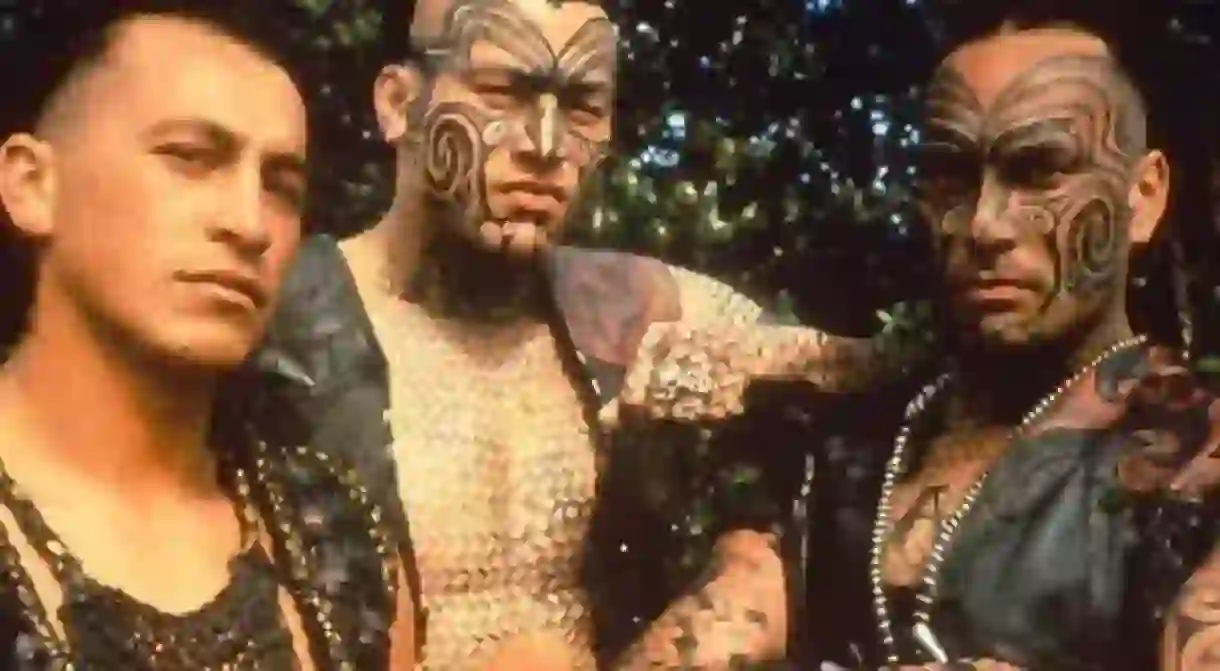The 5 Best Māori Movies You Should Know

While New Zealand cinema is largely regarded for its Hobbits and Orcs, its genres go beyond fantasy film and into several diverse categories. Although the industry’s output is predominantly characterised by dark and brooding films, New Zealand has also produced a number of popular Māori-centric films. Some of these movies are adaptations of great Māori literary geniuses as well as drawn from Māori history and experience. These films are unique in that they combine Māori tradition with the plight of indigenous people that continue to fight for their civil liberties and their rights as tangata whenua, or people of the land.

Ngati (1987)
Set in the fictional town of Kapua in 1948, Ngati is the story of a Māori community living in Aōtearoa, New Zealand. The film follows three significant narratives: a boy, Ropata, who is dying of leukaemia; the return of a young Australian doctor, Greg, to Kapua and his discovery that he has Māori heritage; the communal battle to keep the freezing works from closing. Tonally unique and narratively powerful in its storytelling, Ngati was Barry Barclay’s first dramatic feature and the first feature to be written and directed by a Māori. Ngati also screened in Critics’ Week at Cannes. What makes the work even more significant is that it is largely regarded to be the first ever Māori film. Led by director Barry Barclay, the film’s significance is marked by the importance of the man himself who would later go on to coin the term ‘Fourth Cinema’. With an emphasis on indigenous films being made by indigenous people, Barclay’s Ngati is the foundation for what constitutes a Māori film.
.jpg/220px-Utu_(film).jpg?quality=1&s=10x)
Utu (1984)
It’s the 1870s in colonial New Zealand, and Māori leader Te Wheke (Anzac Wallace) has had enough of British land grabs. He leads a ruthless rebellion against the Government, provoking threatened frontiersmen, disgruntled natives, lusty wahine (women), bible-bashing priests, and kupapa (Māori -war prisoners) alike to consider the nature of ‘utu’ (retribution). Chronicling the struggle of pre-colonial Māori against the British, Utu is loosely based on the exploits of notorious Māori guerrilla warrior, Te Kooti a Rikirangi. Perhaps the most comprehensive Māori history-drama film, Utu is highly regarded as it was given a redux in 2014 and re-released to adoring fans nationwide. In a time of global crisis, Geoff Murphy’s Utu is certain to be New Zealand’s contribution to an international time capsule.

Whale Rider (2002)
Set in Whāngārā, a town on the East Coast of the North Island, Whale Rider tells the story of a young Māori girl, Pai (Keisha Castle-Hughes). Pai must challenge tradition and simultaneously embrace the past while finding the strength and will to lead her people. Based on Witi Ihimaera’s novel, The Whale Rider, the film was directed and written by Niki Caro. Marrying a specific sense of place and culture with a universal coming-of-age story, Whale Rider met incredible success worldwide; it won multiple audience choice awards, including those at Sundance and Toronto. As well as being Oscar-nominated, Whale Rider won the hearts of New Zealanders and audiences world over. Most tellingly, however, the film is said to be Kiwi ex-pats film of choice when feeling nostalgic and homesick, yearning for their own slice of heaven.

Once Were Warriors (1994)
Lee Tamahori’s revolutionary Once Were Warriors opened the eyes of cinema-goers to an unexamined aspect of modern New Zealand life. Tamahori infiltrated the domestic dwelling of an urban Māori whanau (family) to depict the harsh domestic and gang violence experienced by modern-day Māori. The film provided career-defining roles for Temuera Morrison and Rena Owen as Jake the Muss and Beth Heke. Scholarly reception to the film was mostly mixed. Yet, those who tend to favour the film argue that it traces the harmful after-effects of colonialism and the great urban migration of the 60’s of Māori from rural to urban centres. Once Were Warriors is rooted in Māori sentiments of displacement, whanungatanga (family) and the loss of culture in a modern age of dilapidated suburbia. Lee Tamahori’s masterpiece introduces the world to the experience of modern-day Māori living separately from their ancestral roots.

Boy (2010)
Taika Waititi’s second movie, the blockbuster Boy is about an imaginative 11-year-old boy (James Rolleston) living on the East Coast who is trying to make sense of the world around him. The movie was filmed in the Bay of Plenty area, a place where Waititi grew up. A winner at the 2010 Berlin Film Festival, Boy become the most successful local release on its home soil at the time – surpassed by Waititi’s Hunt for the Wilderpeople in 2016. Boy is revolutionary for Māori film. In older Māori films, including Whale Rider and Utu, Māori humour is merely a sideshow to the drama that is colonial history and race politics. Boy, however, subverts the importance of race and history and instead draws directly on classical Māori humour. Trademarked by leading New Zealand comic Billy T James, Māori humour has long been present in mainstream society. Boy merely dedicates its efforts to the dry wit and whimsical nature of Māori humour that has been overshadowed in Māori films past.













